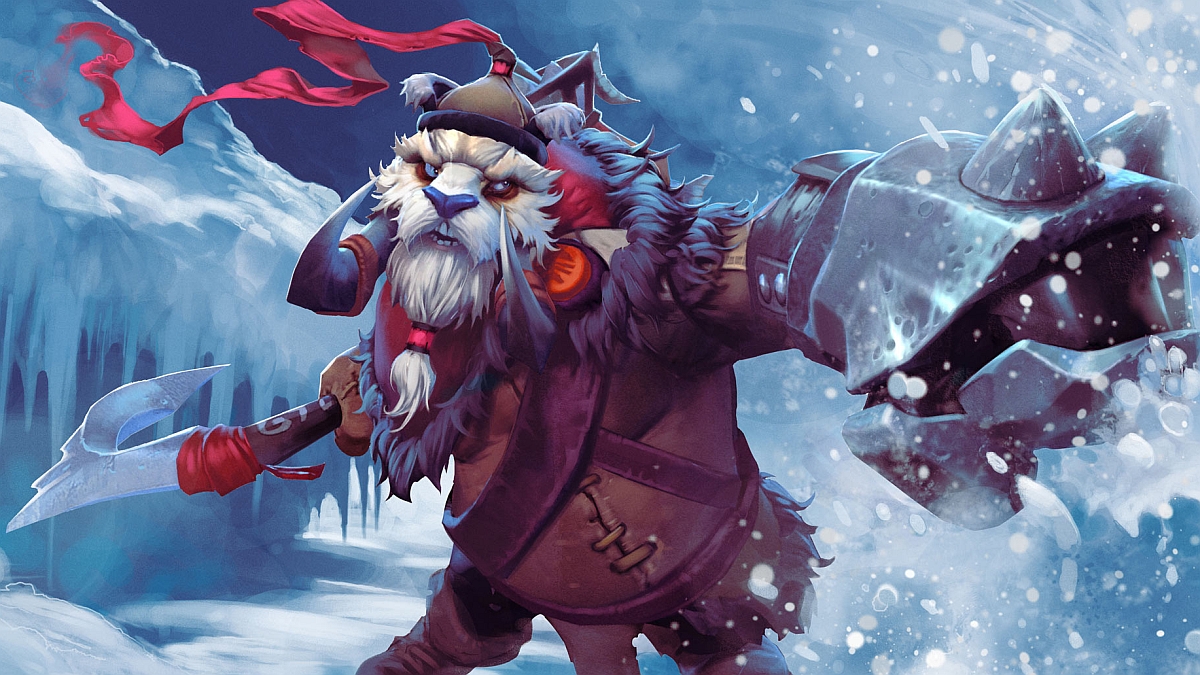Why Dota 2 needs in-game tournament tools

Every week, Chris documents his complex ongoing relationship with Dota 2, Smite, and wizards in general.
This weekend, check out the Rektreational! It's a games industry Dota 2 tournament. Chris is playing in Uptown Dunk, casting, writing this in the third person, and not even done plugging this yet.
Aside from last week's journey into low prio, my recent experience of Dota has been divided between two extremes. I've been playing solo ranked every day, eking out MMR points in a land where actual cooperation is a precious commodity, warred over by very angry young men who will scream, betray and trample one another if it means not being the last person to call somebody else a dickhead. It's solo Dota. You know what you're getting into.
Over the last two weekends I've also being playing in The Rektreational 2. It's a games industry Dota tournament run by a bunch of guys on the west coast of the USA. My team, Uptown Dunk, comprises people from various UK games media outlets. Others represent specific developers, websites, and so on. It's friendly and a lot of fun, like a golf invitational. It's an excuse to talk about Dota with colleagues. If you'd like to watch the main bracket this weekend, the first game is at midnight PDT Friday/8am GMT Saturday.
The Rektreational is also, for the people who organise it, a huge amount of work. Making a tournament happen means weaving together Google docs, email threads, Challonge brackets, and so on. It means finding times when seventy-plus people can play. The first Rektreational ended in February after almost six months of working around this stuff. The second has been run over two weeks—with a much more unforgiving bracket—in order to simply remain practical.
This needn't be the case. As good as the external tools for arranging tournaments are, making them work together is a job that requires a lot of commitment from a team of human administrators. This is true of any tournament in almost any game, amateur or otherwise. Yet much of this effort goes into solving problems that computers are, by their nature, very good at handling. Much of the effort required to run an amateur bracket could be negated—or at the very least, simplified—if the functionality for running brackets was incorporated into the game itself. Hell, Dota even has a 'manage tournaments' button on the community page—greyed out, for the majority of players, since time immemorial.
Structured team play is a really rewarding way to experience Dota, and it's unfortunately downplayed by a game itself. Team matchmaking has been a mess for a while, buggy and detached—fine if all you want is a five-stack to practise against, but that's about it. It doesn't give you access to any of the really rewarding stuff.
Namely: getting to know a manageably small circle of opponents. Getting to prepare. Getting to tailor specific strategies, rather than the catch-all generalism that traditional matchmaking encourages. Getting to experience winning when it matters, even if it only matters to the sixteen teams in contention. All of this stuff scales with skill level: you don't need to be a pro to get something out of taking Dota a little more seriously than you otherwise might. There is such a thing as 3K MMR tournament meta—you just don't see it because very few people can be bothered to go through the hassle of organising something at that level.
Valve haven't expressed much interest in running Dota 'seasons' at an amateur level—they leave that to the community, to groups like JoinDota—but they have expressed an interest in providing the community with tools. There's even precedent for players organising their own structured competition with their friends within the game—it just takes the form of a fantasy leagues, rather than actual Dota.
Keep up to date with the most important stories and the best deals, as picked by the PC Gamer team.
Imagine this, then: a toolset whereby players could configure ladders, brackets, and so on, and invite premade teams to participate. The game client would handle results, progression, and so on. You could even open tournaments up to the public and apply entry criteria—a nationality, an MMR range, and so on. Add some kind of system for voting on match times and handling forfeits and you've got a framework for amateur tournaments that would make running them vastly more appealing to admins, and therefore more widespread, and therefore more accessible.
Streaming or spectating games makes things more complicated, and that's something to enter into at the organiser's discretion. As is prizes, sponsorship and so on—but they're not the point. The point is giving more of Dota 2's playerbase access to one of the most satisfying ways to play, and providing alternate progression paths that sit comfortably alongside the MMR system.
As Dota grows, being able to compete like this gets harder—and, arguably, more necessary. Amateur tournaments make the game feel smaller, and, in turn, more meaningful. Tournaments for the top 1% are, by their nature, exclusive. I want the tools to run brackets for the rest of us: trench thunderdomes that encourage lasting rivalries and, dare I suggest, a sense of community.
To read more Three Lane Highway, click here.
Joining in 2011, Chris made his start with PC Gamer turning beautiful trees into magazines, first as a writer and later as deputy editor. Once PCG's reluctant MMO champion , his discovery of Dota 2 in 2012 led him to much darker, stranger places. In 2015, Chris became the editor of PC Gamer Pro, overseeing our online coverage of competitive gaming and esports. He left in 2017, and can be now found making games and recording the Crate & Crowbar podcast.


